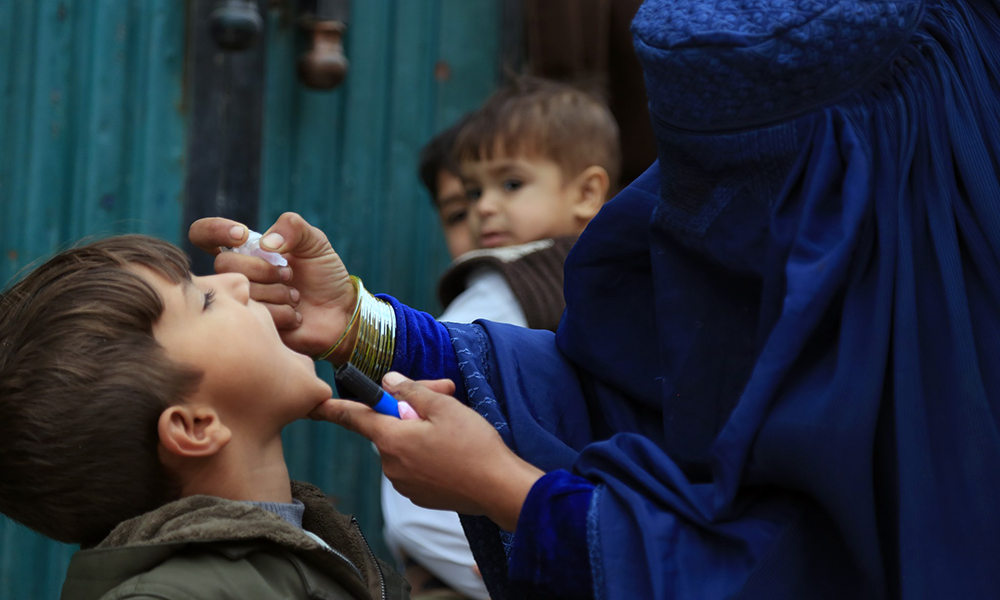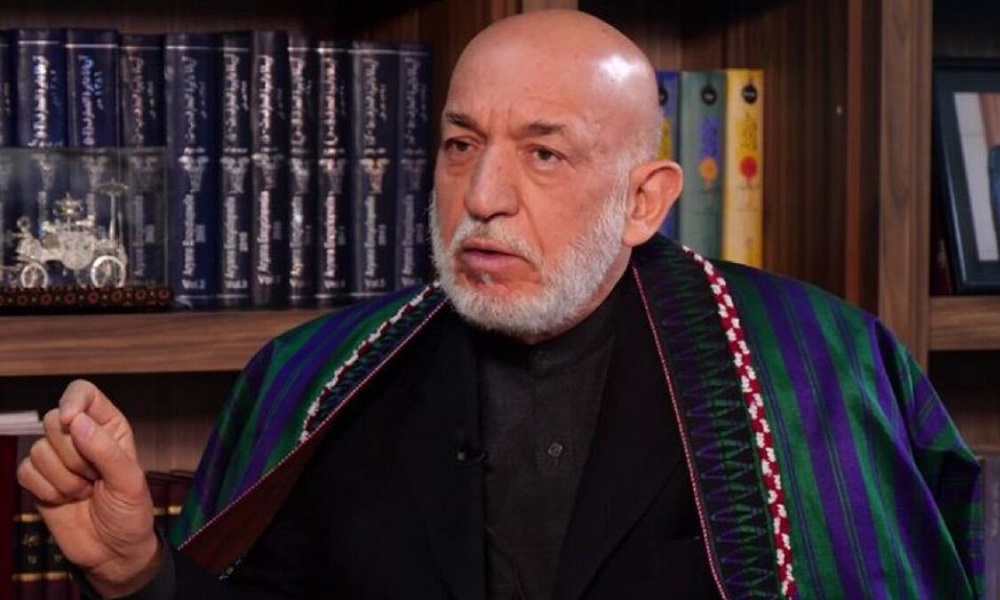Latest News
World accepts security can be ensured with IEA ruling Afghanistan: Kabir

The world acknowledges that there can be no security threat from Afghanistan with the Islamic Emirate ruling the country, Deputy Prime Minister for Political Affairs Abdul Kabir said on Sunday.
Abdul Kabir made the remarks at a ceremony to welcome the return of academic staff and university professors to the country.
"The world understands the fact that if they want security in the neighboring countries, the region and the world, the Islamic Emirate has done it and can do it. So there is a need to give the hand of interaction to the Islamic Emirate,” he said.
The official added that they will continue their diplomacy with the world community to end the problems that exist in the relations between Afghanistan and the world. He stressed that the Islamic Emirate will be successful in the field of politics and economy like it was on the battlefield
“You know that our embassies are open in 16 countries. People have either been sent from here or have declared their affiliation with the Islamic Emirate there,” Kabir said.
Neda Mohammad Nadim, Acting Minister of Higher Education, said: “Anyone who is sincere with this country and Islam is a son and citizen of this country and has rights in the system. We are committed to protecting your dignity. We have promised that wherever there is a problem, we are obliged to solve your problem.”
Anas Haqqani, a member of the Political Commission of the Islamic Emirate, in response to claims that the Islamic system is not sustainable and will collapse, emphasized that the foundations of the system are strong against any conspiracy. He added that world politics has changed and all countries support stability in Afghanistan.
“I want to assure you that we did not take over easily, nor is it the result of a deal. We have taken over with the sacrifice of heads. The world tried hard. After it realized that it cannot gain a foothold here, it left. This system has solid foundations and no one should think that it will disappear soon,” Haqqani said.
Khairullah Khairkhah, Acting Minister of Information and Culture, said: "In the current situation where sanctions have been imposed on the banking system, the government is not recognized and we are facing many problems, still, see the value of currency and the price of commodities.”
Meanwhile, university professors demanded an increase in scholarships and also asked the Islamic Emirate to consider residential settlements for university professors.
“Our request to the honorable government officials and the honorable Ministry of Higher Education is to pay special attention to young cadres,” university professor Noor Ahmad Emal said.
"We still have academic staff in our country. We request our leaders create master's and doctorate programs in different Afghan universities. With this, the scientific capacity in the country will be increased and expenses will be avoided, and there will be no need for foreign countries,” university professor Wahidullah Jamal said.
According to officials, after the establishment of the Islamic Emirate, 450 professors left Afghanistan for their master's and doctorate courses and have returned to the country and are busy teaching in various public universities.
Latest News
A new polio vaccination campaign is set to launch in Afghanistan
Afghanistan and Pakistan are the only two countries in the world where polio has not been eradicated.

The “Afghanistan Polio-Free” organization announced that a new round of polio vaccinations will begin on Monday, December 23, in various provinces of Afghanistan.
The organization did not specify which provinces will be targeted or how long the vaccination campaign will last.
Afghanistan and Pakistan are the only two countries in the world where polio has not been eradicated.
On December 4, 2023, the World Health Organization (WHO) issued a statement reporting a 283% increase in polio cases in Afghanistan. According to the WHO, the number of positive environmental samples for wild poliovirus type 1 in Afghanistan in 2024 reached 84, compared to 62 cases in 2023.
The Ministry of Public Health claimed in November 2024 that no new cases of polio had been reported in Afghanistan for the year.
Latest News
G7 envoys urge national dialogue for lasting stability in Afghanistan

Special Representatives of the Group of Seven (G7), including the European Union, have emphasized the importance of a national dialogue for achieving long-term stability in Afghanistan.
Following a meeting on Afghanistan in Geneva, Switzerland, G7 special envoys issued a joint statement calling for the restoration of women's rights and urging the Islamic Emirate to fight terrorism.
The statement reads: "Achieving sustainable peace and stability requires credible governance that represents all segments of Afghan society."
The representatives also expressed concern over the IEA’s decision to ban girls from attending medical institutes, warning that it will have devastating consequences for the citizens, particularly mothers and their infants.
The statement described this ban as unacceptable and called on the Afghan authorities to lift it immediately.
Earlier, countries and international organizations had called for the removal of restrictions on the education and employment of women and girls, emphasizing the need for a national dialogue.
In response to these concerns, IEA has repeatedly stated that it will not allow interference in the internal affairs of the country.
The G7 special envoys also expressed their concern about the recent terrorist attacks in Kabul and the surrounding region, warning that terrorism remains a serious threat to Afghanistan's security. They confirmed the actions of the IEA against Daesh but stressed the need for more decisive measures.
Latest News
Afghanistan’s bright future lies in educating girls: Karzai

Hamid Karzai, the former president of Afghanistan, says the demand of Afghan girls for the reopening of schools and universities is their fundamental right and adds that Afghanistan cannot have a bright future without ensuring access to education for girls.
In a statement on his X (formerly Twitter) account, Karzai said: "The demand and voice of our country’s girls for education and knowledge is a rightful one and crucial for a prosperous Afghanistan."
He further emphasized, "Empowering the youth—both girls and boys—is the only way to achieve self-reliance, break the cycle of poverty, and drive the development and prosperity of society."
Karzai underscored that education is vital for Afghanistan’s growth and development, expressing hope that the doors of schools and universities for girls will be reopened as soon as possible.
-

 Sport5 days ago
Sport5 days agoLanka T10: All three matches abandoned due to rain
-

 Latest News5 days ago
Latest News5 days agoIndia hoping to import coal and marble from Afghanistan
-

 Sport4 days ago
Sport4 days agoZimbabwe’s opening ODI against Afghanistan abandoned
-

 Latest News5 days ago
Latest News5 days agoJapan announces $27.5 million aid package to Afghanistan
-

 Latest News1 day ago
Latest News1 day agoAfghan men must stand with women to support viable future of country: US envoy
-

 World3 days ago
World3 days agoNorth Korean troops suffer 100 deaths, struggling in drone warfare, South Korea says
-

 Latest News3 days ago
Latest News3 days agoTwo horror accidents on Kabul-Kandahar highway leave 52 dead
-

 International Sports4 days ago
International Sports4 days agoLanka T10: Kandy Bolts in at 4th spot in playoffs after thrilling day
























